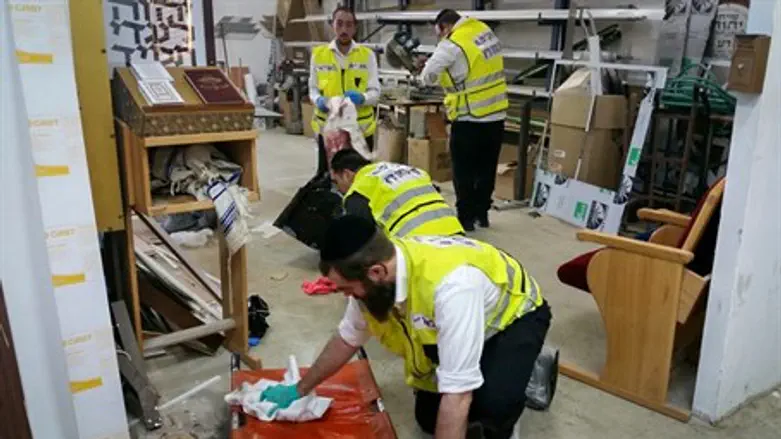
An internal police investigation into the lethal knife attack at the Panorama building in southern Tel Aviv on November 19, in which Reuven Aviram and Aharon Yisayev were murdered as they were praying, has revealed huge gaffes by senior police officials.
After murdering the two, terrorist Raed Khalil then tried to stab more victims at a makeshift synagogue in the building, although the worshipers managed to lock him out. Khalil, a 36-year-old resident of Dura in Judea, was indicted last month.
The terrorist, a father of five, arrived at the building after finishing a work shift at a restaurant in adjacent Yafo where he was legally employed, having been given a permit by the authorities to enter sovereign Israeli territory.
According to the internal investigation, revealed by Channel 10 on Monday, the senior police staff were completely unaware that an attack was occurring, and they were sitting in a meeting at the time continuing to chat as Khalil prowled for victims.
For nearly a quarter of an hour not a single member of the senior district police staff was aware of the ongoing attack, and none of them were involved in managing police forces trying to locate and capture the terrorist as he wandered at large in the building.
The district commander only found out about the attack after an officer driving in his patrol car realized from his communications device that the senior staff were clueless and not engaged, and called the secretary asking that she go into the meeting and let them know.
Only several minutes later did the senior sources begin to take responsibility for the handling of the event, according to the investigation.
Another serious breach discovered in the internal investigation involved the communication between the forces on the ground trying to locate and apprehend the stabber.
The forces were trying to maintain contact through different radio frequencies, and as a result did not hear each other, creating a jarring lack of coordination.
Due to the lack of communication, each commander or officer who arrived on the scene began giving orders, without any synchronization or clear chain of command.
Tel Aviv district police spokesperson Chief Superintendent Hila Hamo said in response: "the Israel police is an organization that learns and implements lessons. We do not intend to address internal documents in the media."